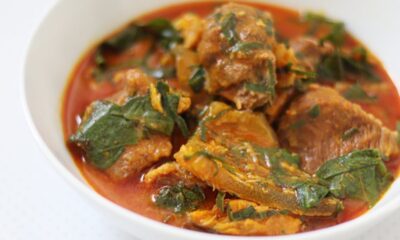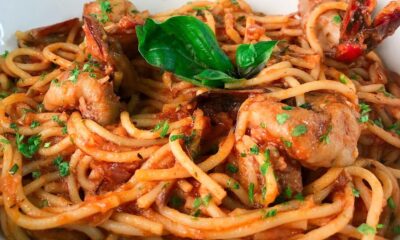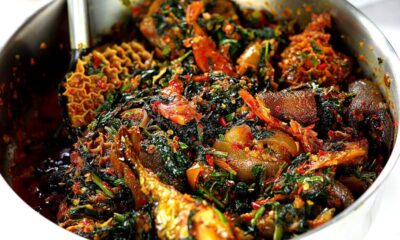FOOD
How Many Eggs Are Right For You In A Day?
Published
9 months agoon

Eggs are often praised as nutritional, containing high-quality protein, essential vitamins, and minerals. However, concerns about cholesterol have led to some confusion about how many eggs are healthy to eat. While eggs deliver valuable nutrients, understanding the concept of moderation is key to incorporating them into a balanced diet.
While some previous dietary guidelines restricted egg consumption due to cholesterol concerns, recent research suggests a more nuanced approach. The body naturally produces cholesterol, and dietary cholesterol from eggs may not have a significant impact on heart health for most healthy individuals.
However, moderation remains important. While eggs offer numerous benefits, they also contain calories and saturated fat. Overconsumption can contribute to an unhealthy diet, potentially impacting cholesterol levels and overall health.
So, how many eggs are considered moderate? While individual needs may vary, most healthy adults can safely enjoy around one to two eggs per day as part of a balanced diet. This allows you to reap the nutritional benefits of eggs without potentially exceeding the recommended limits for saturated fat and cholesterol.
Remember, a healthy diet focuses on variety and balance. Include eggs alongside other sources of protein, healthy fats, and essential vitamins and minerals to ensure your body receives the nutrients it needs to thrive.
Cholesterol concerns
While eggs offer a wealth of nutrients, concerns about cholesterol sometimes lead to confusion about healthy consumption. One large egg indeed contains about 186 mg of cholesterol, primarily found in the yolk. However, it’s important to understand the evolving science around dietary cholesterol and its impact on individual health.
Recent research suggests that dietary cholesterol, like that found in eggs, may have less impact on blood cholesterol levels than previously believed. This positive news means that enjoying eggs as part of a balanced diet is generally safe for most healthy individuals.
However, there are some important nuances to consider. Individuals with pre-existing health conditions, particularly diabetes or heart disease, may need to be more mindful of their egg intake.

Ultimately, when it comes to eggs and cholesterol, consider individual health factors and consult a healthcare professional for personalised guidance. Listen to your body, embrace moderation, and enjoy eggs as part of a balanced and nutritious diet!
Balanced diet benefits
Eggs deliver a protein punch along with key vitamins and minerals. They’re convenient and affordable, making them a popular breakfast staple. But while eggs deserve a place on your plate, remember: variety is the spice of life, especially when it comes to protein sources.
Relying solely on eggs for your protein needs means missing out on the benefits other options offer. Lean meats, for example, are rich in iron, which is important for healthy red blood cells. Fish provides omega-3 fatty acids, which are important for brain and heart health. Legumes, like beans and lentils, are packed with fibre, which aids digestion and promotes satiety. These are just a few examples of the unique nutritional contributions each protein source brings to the table.
Think of your diet as an artist’s palette. Eggs can be a shining yellow, but to create a masterpiece, you need a spectrum of colours. Including a variety of protein sources paints a more complete picture of health on your plate. Each addition brings distinct nutrients and flavours, creating a more satisfying and nourishing body.
Get the latest and greatest updates right away! Join our exclusive WhatsApp channel and never miss out on exciting news again.
Calorie caution
While eggs might seem like a harmless breakfast staple, their seemingly low-calorie count (around 70 per large egg) can be deceiving. Indulging in multiple eggs each day can unwittingly contribute to a significant calorie surplus, especially if you’re mindful of your weight but not actively adjusting other parts of your diet to compensate.
Imagine enjoying two scrambled eggs with toast for breakfast, followed by a hard-boiled egg as a mid-morning snack. Before you know it, you’ve already racked up almost 200 calories just from eggs alone. This hidden calorie creep can easily derail your weight management goals if not taken into account.

Remember, moderation is key! Enjoy eggs as part of a balanced diet, and be mindful of portion sizes, especially if weight management is a goal. By making informed choices and embracing a variety of protein sources, you can fuel your body for optimal health without sacrificing taste or satisfaction.
Saturated fat and heart health
While they are packed with protein and vitamins, they also contain saturated fat—around 1.6 grams per large egg. This amount might seem small, but indulging in multiple eggs daily can add up quickly, potentially exceeding recommended limits and impacting heart health in the long run.
So, how many eggs are just right? Unfortunately, there’s no one-size-fits-all answer. The magic number depends on several factors:
- Your overall diet: Are you already incorporating other sources of saturated fat, like red meat or dairy? If so, moderation with eggs becomes even more important.
- Your health: Do you have pre-existing conditions like high cholesterol or heart disease? If yes, consulting a healthcare professional for personalised guidance is crucial.
- Your individual needs: Are you actively managing your weight or have specific nutritional goals? Channelling your egg intake to fit your unique needs is key.
For many, one egg per day can comfortably fit into a balanced diet without exceeding recommended limits. This allows you to reap the benefits of eggs without compromising your health.
However, remember:
- Moderation is key. While they are nutritious, don’t rely on them solely for protein. Explore other options, like lean meats, fish, and legumes, for a wider range of nutrients.
- Listen to your body. Pay attention to how you feel after consuming eggs. If you experience discomfort or have concerns, adjust your intake accordingly.
- Seek professional guidance if needed. Talk to a healthcare professional for personalised advice based on your unique health situation and goals.
Ultimately, cracking the code to healthy egg consumption lies in understanding your individual needs and practising moderation.
If you liked this article, also read this.

There are different ways to cook rice in Nigeria, making it the centrepiece of their celebrations, everyday meals, and social gatherings.
Creative cooks have developed numerous different ways to cook rice in Nigeria, moving beyond traditional jollof rice and plain white rice preparations.
Furthermore, these different ways to cook rice in Nigeria showcase the country’s diverse culinary heritage, as each region brings its unique twist to rice dishes.
From the coastal areas to the northern regions, innovative chefs and home cooks continue to explore different ways to cook rice in Nigeria, transforming this simple grain into extraordinary meals that delight the palate.
This exploration of six different ways to cook rice in Nigeria demonstrates how cooks elevate this versatile ingredient. They combine local spices, traditional cooking methods, and regional ingredients to create distinctive dishes.
1. Coconut Rice
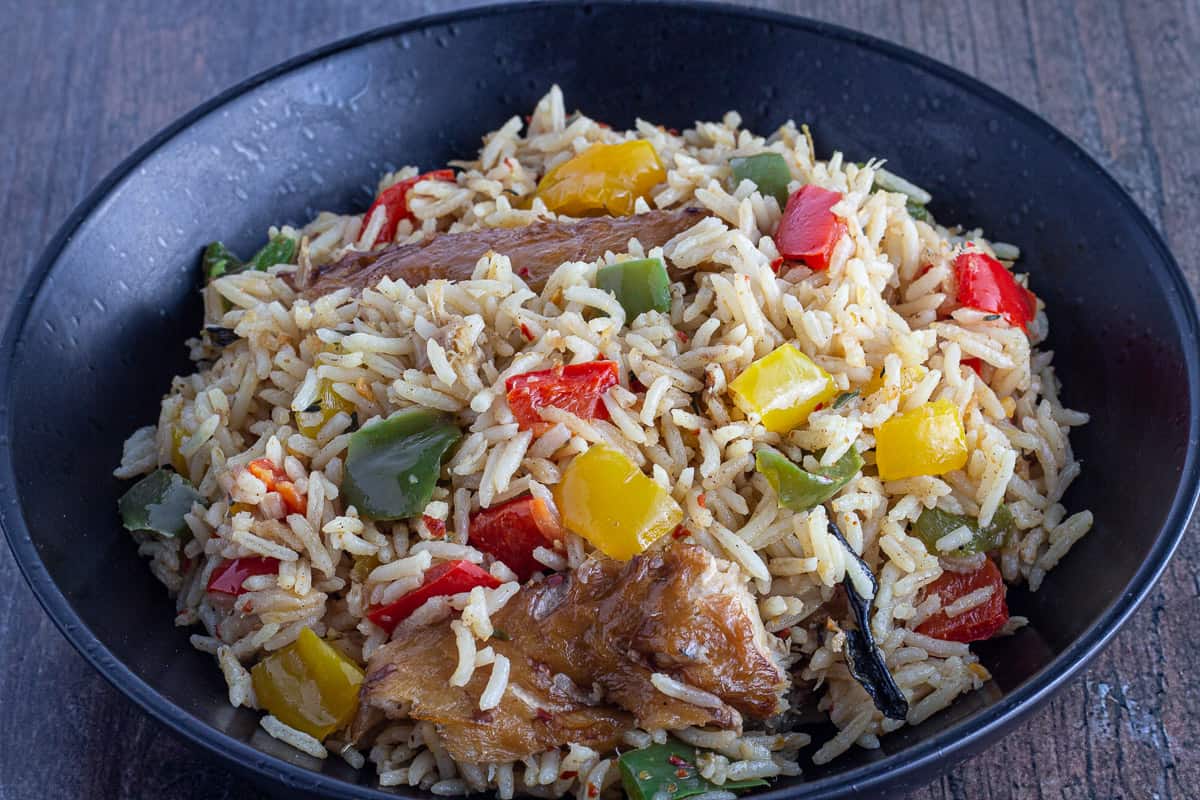
Coconut rice is a beloved dish that elevates the flavour of plain rice with a tropical twist. It’s perfect for special occasions or when you want to try something different.
Cook your rice in rich coconut milk, adding ingredients like diced onions, garlic, and a bit of pepper for a kick. You can also throw in some chopped vegetables like carrots and green beans for extra flavour and texture.
Enhance the dish with grilled chicken, prawns, or fish. These proteins pair well with the subtle sweetness of the coconut. Finish with freshly chopped parsley or spring onions for a burst of colour and freshness.
Coconut rice pairs perfectly with spicy stews or grilled meats, making it an excellent choice for festive gatherings.
2. Rice Pancakes (Tuwon Shinkafa)

Rice pancakes, also known as Tuwon Shinkafa in northern Nigeria, are a creative way to use leftover rice. This dish is soft inside and slightly crispy outside, making it a satisfying meal or snack.
Blend cooked rice with a bit of water until smooth. Add a touch of salt, and mix in some chopped onions and peppers for flavour. Fry the batter in a pan with a little oil until golden brown.
These rice pancakes taste fantastic with spicy pepper sauce, vegetable soup, or even a dollop of yoghurt for a cooling contrast. You can experiment with flavours by adding herbs like thyme or dried fish flakes for a unique Nigerian touch.
Rice pancakes are a fantastic way to transform leftover rice into something special and appetizing.
3. Rice Moi Moi (Steamed Rice Cakes)

Rice Moi Moi is a lesser-known dish but is just as delicious as its counterpart made with beans. It’s a great option for those who want a protein-rich meal without the hassle of soaking and blending beans.
Use rice flour, blended with ingredients like red bell pepper, onions, and seasoning. For a richer flavour, add flaked fish, eggs, or ground crayfish to the batter.
Pour the mixture into greased containers or banana leaves, and steam until firm. The result is a soft, savoury cake that can be eaten on its own or paired with sauces.
Serve with a side of pepper stew or tomato sauce for a complete, satisfying meal.
4. Rice Porridge (Concoction Rice)
Concoction rice is a one-pot wonder that allows you to use whatever ingredients you have on hand. It’s quick to prepare and perfect for a hearty lunch or dinner.
Cook your rice in a flavorful broth made from tomatoes, onions, peppers, and palm oil. Add spices like curry, thyme, and seasoning cubes to enhance the flavour.
Include proteins like smoked fish, chicken, or shrimp along with vegetables like spinach or ugu (pumpkin leaves) for added nutrition. Let the rice cook until slightly crispy at the bottom for a smoky jollof-like flavour.
Concoction rice is a budget-friendly dish that doesn’t compromise on taste and is perfect for busy weeknights.
5. Rice Fritters (Akara Rice)
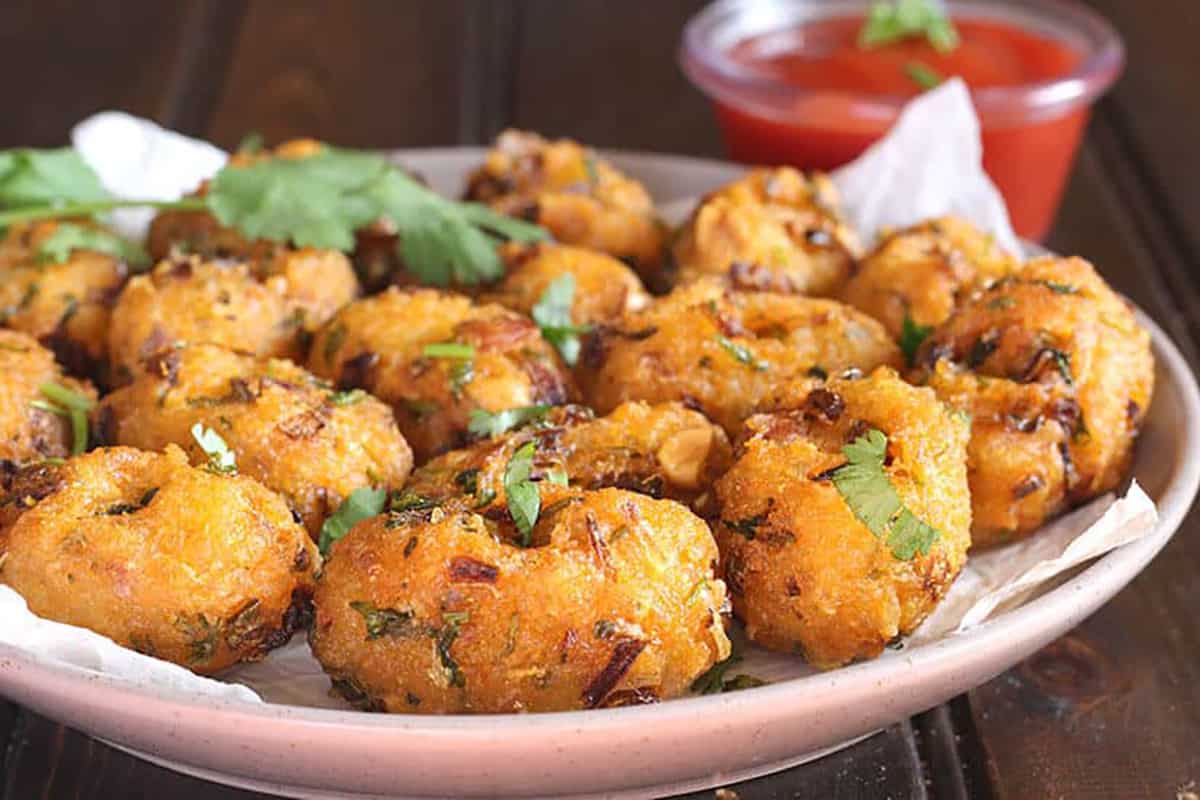
Rice and beans are often served together in Nigerian households, but why not take them up a notch by turning them into fritters? This dish is ideal for using up leftovers and creating a fun, finger-food experience.
Mash leftover cooked rice and beans together. Mix with spices, chopped onions, peppers, and a bit of flour to bind it all together. Form small patties and fry until golden brown.
These crispy fritters can be enjoyed on their own or dipped in a spicy sauce. They’re great for breakfast, lunch, or as a snack. For a healthier twist, bake the fritters in the oven instead of frying.
Rice and beans fritters are a creative, delicious way to repurpose leftovers while enjoying a satisfying crunch.
6. Rice Casserole

If you’re looking for something hearty and filling, a rice casserole is the way to go. This dish allows you to get creative with layers of flavours and textures.
Cook your rice and set aside. In a separate pan, sauté onions, garlic, and bell peppers. Add ground meat (like beef or chicken) and season well. Mix this with your cooked rice and place it in a baking dish.
Add layers of cheese, vegetables like spinach or zucchini, and a topping of breadcrumbs for a crispy finish. Bake in the oven until the top is golden brown and the cheese is melted. Serve hot with a side of salad or coleslaw.
This rice casserole is perfect for family dinners or potlucks. It is a satisfying, all-in-one dish that’s easy to prepare.
Rice is versatile, budget-friendly, and incredibly adaptable to various flavours and cooking methods. When you explore these six different ways to cook rice, you keep your meals exciting and varied in Nigeria. You can do this while sticking to familiar ingredients.
Whether it’s the creamy goodness of coconut rice, the crispy satisfaction of rice fritters, or the savoury comfort of a rice casserole, there’s a dish for every taste and occasion.
Why not try one of these recipes this week? You might just discover a new family favourite!
For more food articles, check here.
FOOD
With This Simple Recipe You Can Make Nigerian Oha Soup!
Published
2 weeks agoon
November 10, 2024
Oha soup, also called Ora soup, is a delicious and nutritious dish from the southeastern region of Nigeria. Known for its unique taste and texture, Oha soup is a popular staple among the Igbo people and is cherished for its rich blend of flavours, leafy greens, and thick consistency.
This recipe breaks down the steps to make an authentic Oha soup at home.
Ingredients You Will Need for Oha Soup
To make Oha soup, gather these essential ingredients:
- Oha leaves (Ora leaves) – 1 handful (finely chopped)
- Cocoyam – 8-10 small pieces (for thickening)
- Palm oil – 2-3 tablespoons
- Beef or goat meat – 500 grams
- Stockfish – 1 cup (optional)
- Dry fish – 1 cup
- Snails – 1 cup (optional)
- Ground crayfish – 2 tablespoons
- Ogiri (fermented locust beans) – 1 teaspoon
- Fresh pepper – to taste
- Seasoning cubes – 2
- Salt – to taste
Waterleaf or spinach – 1 handful (optional, for extra greens) - Optional proteins – Oha soup is versatile and can be prepared with a variety of proteins, including cow tripe (shaki), chicken, and cow skin (ponmo). Feel free to add or substitute based on preference.
Step 1: Prepare the Ingredients
1. Use your fingers to tear the Oha leaves into small pieces. Avoid cutting with a knife, as it can make the leaves darker and affect the taste.
2. Wash and boil the cocoyam until it becomes tender. Then, pound it into a smooth paste using a mortar and pestle. This serves as the soup thickener.
3. Wash your beef, dry fish, and other meats thoroughly. Cut into desired sizes and season with salt and seasoning cubes.
Step 2: Cook the Meat and Stock
1. In a large pot, add the beef, stockfish, dry fish, and snails (if using). Season with salt and seasoning cubes.
2. Pour enough water to cover the meats, then cover the pot and allow it to cook for 30-40 minutes until the meat becomes tender and flavorful.
3. Taste the stock and adjust the seasoning if necessary. This is crucial because the stock forms the base of the soup.
Step 3: Add Palm Oil and Cocoyam Paste
1. Once the meat is cooked, add the palm oil directly into the pot. Stir well and allow it to cook for about 5 minutes to dissolve in the stock.
2. Take spoonfuls of the pounded cocoyam paste and add them to the pot. This thickens the soup, giving it a rich, creamy consistency.
3. Stir gently and allow the cocoyam to dissolve fully. This usually takes around 10-15 minutes. The soup should thicken gradually.
Step 4: Add Crayfish, Ogiri, and Fresh Pepper
1. Sprinkle in the ground crayfish for a deeper flavour.
2. Ogiri adds a traditional, slightly pungent taste to the soup. Add it in small amounts to avoid overpowering the dish.
3. Include fresh pepper according to your spice preference. Stir the ingredients well and let everything simmer together for another 5 minutes.
Step 5: Add the Vegetables
1. Add waterleaf or spinach: This step is optional but recommended for extra greens and a touch of freshness.
2. Finally, add the Oha leaves to the pot. Stir them gently into the soup and let them cook for 2-3 minutes. Be careful not to overcook the leaves, as they are delicate and can lose their colour and flavour.
Step 6: Serve and Enjoy
Your Oha soup is now ready! Serve it hot with your favourite swallows, such as pounded yam, fufu, or eba. The rich flavours of the meats, fish, and vegetables come together in this hearty dish, making it a truly satisfying meal.
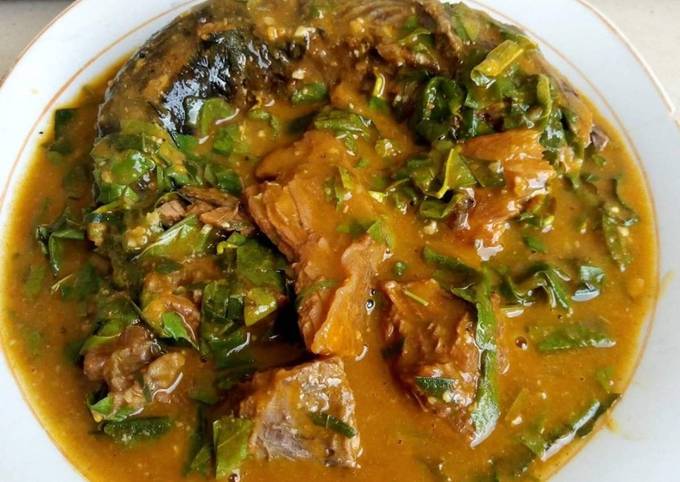
Tips for a Perfect Oha Soup
- Use fresh Oha leaves: The taste of Oha soup is best when the leaves are fresh.
- Avoid using a knife on the leaves: Tearing the leaves by hand preserves their natural colour and prevents bitterness. It also makes the leaves more visible and lasting in the soup.
- Balance the ogiri: Ogiri has a strong flavour, so add it gradually until you reach the desired taste.
Nutritional Benefits of Oha Soup
Oha soup is not only delicious but also packed with nutrients. It is a good source of protein (from meat and fish), healthy fats (from palm oil), and fibre (from vegetables).
Cocoyam provides complex carbohydrates, which give you lasting energy. Additionally, Oha leaves contain essential vitamins and minerals that boost immunity and improve skin health.
What can I use to thicken Oha soup if I don’t have cocoyam?
If you don’t have cocoyam, you can use achi, ofor, or even yam as a substitute thickener. These alternatives will help achieve a similar consistency and are also commonly used in Nigerian soups.
Can I make Oha soup without ogiri?
Yes, you can make Oha soup without ogiri, though it may lack the unique flavour ogiri provides. If you don’t like ogiri or cannot find it, you can substitute it with iru (locust beans), which offers a milder flavour.
How do I store leftover Oha soup?
To store Oha soup, let it cool completely before transferring it to an airtight container. Store it in the refrigerator for up to 3 days or in the freezer for up to a month.
Reheat on the stove, adding a little water if the soup has thickened too much.
Oha soup is a flavorful and nutritious dish that reflects the richness of Nigerian cuisine. With its unique combination of ingredients, this recipe provides a delightful experience that’s perfect for family gatherings or festive occasions.
Follow these steps to create an authentic, satisfying Oha soup, and enjoy the warm taste of traditional Nigerian cooking right in your kitchen.
For more food articles and recipes, visit here.

Are you among the millions worldwide who struggle with bad breath? While good oral hygiene is important, including certain foods that prevent bad breath in your diet can serve as powerful natural remedies.
These foods that prevent bad breath not only help keep your mouth fresh but also improve your overall oral health.
Adding foods that prevent bad breath to your diet can enhance your breath and support your oral hygiene routine. By choosing natural, refreshing foods, you’ll find an easy and effective way to keep your breath fresh all day.
Let’s take a look at some of these foods that prevent bad breath below:
1. Green Tea
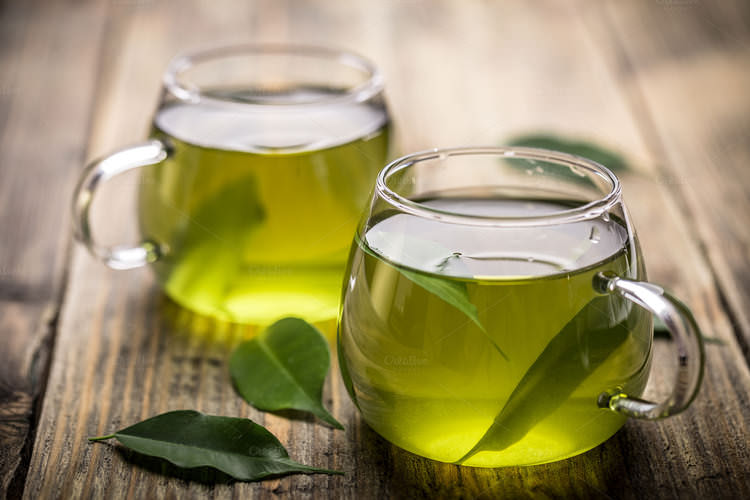
Start your day with a cup of green tea to fight bad breath effectively. Green tea contains polyphenols that reduce oral bacteria and sulfur compounds. These compounds cause the unpleasant odour associated with bad breath.
Moreover, green tea’s antioxidants help maintain healthy gums and prevent tooth decay. For best results, drink a cup of unsweetened green tea after meals or whenever you need a quick breath refresher.
2. Yogurt
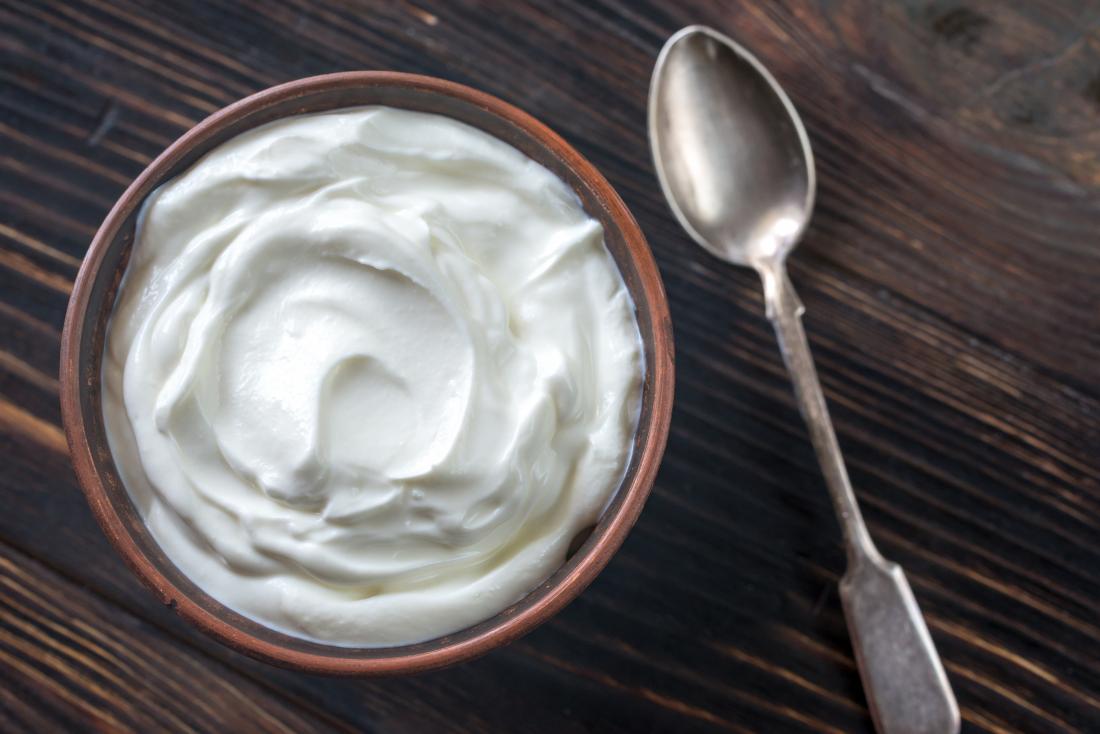
Plain yoghurt works wonders for your breath. The active cultures in yoghurt help combat harmful bacteria in your mouth. These beneficial bacteria reduce the production of hydrogen sulfide, a primary cause of bad breath.
Choose sugar-free, plain yoghurt for maximum benefits. Consume one serving daily, preferably in the morning or after meals. Greek yoghurt offers additional protein and fewer sugars, making it an excellent choice.
3. Fresh Herbs and Spices
Parsley, mint, and cilantro do more than garnish your plate. These herbs contain chlorophyll, a natural deodorizer that neutralizes bad breath. Chew fresh parsley after garlic-heavy meals to neutralize strong odours.
Additionally, mint leaves freshen breath instantly while providing antimicrobial benefits. Keep fresh herbs handy and chew them throughout the day for lasting freshness.
4. Crunchy Fruits and Vegetables

Apples, carrots, and celery act as natural toothbrushes. Their crisp texture helps scrub away food particles and plaque. These foods also increase saliva production, naturally cleansing your mouth.
Furthermore, the high water content in these foods helps wash away bacteria. Incorporate these crunchy foods into your daily diet as healthy snacks between meals.
5. Citrus Fruits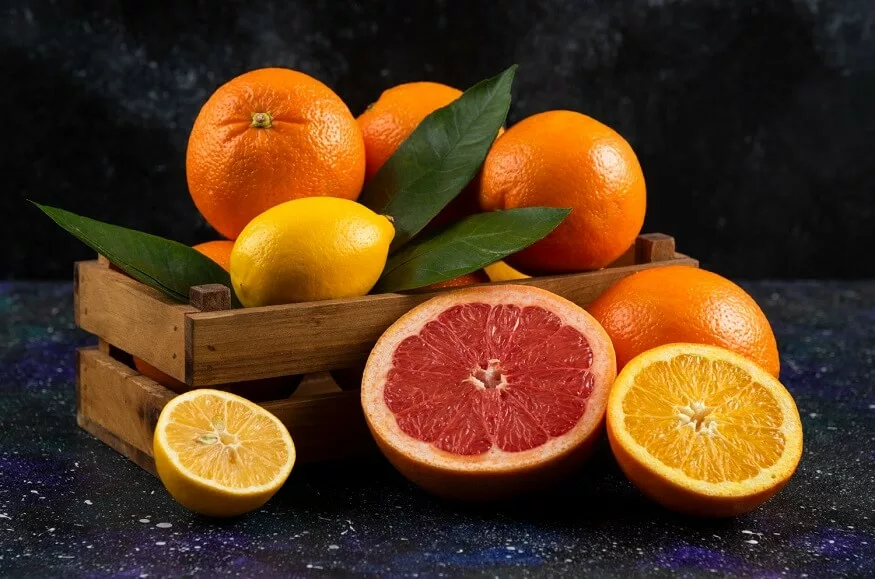
Lemons, oranges, and grapefruits fight bad breath through vitamin C. This essential vitamin creates an unfavourable environment for bacteria growth. The acidic nature of citrus fruits also stimulates saliva production.
Remember to wait 30 minutes before brushing after consuming citrus fruits. Their acidity can temporarily soften tooth enamel, making teeth vulnerable to brushing damage.
Tips for Maximum Benefits
Combine these foods with proper oral hygiene for best results. Brush twice daily, floss regularly, and clean your tongue. Stay hydrated throughout the day to maintain optimal saliva production.
Consider eating these foods raw when possible. Raw foods require more chewing, increasing saliva production naturally. Schedule regular dental check-ups to address underlying causes of bad breath.
How quickly can food help improve bad breath?
Some foods, like fresh herbs and citrus fruits, provide immediate temporary relief. However, incorporating breath-freshening foods consistently into your diet produces longer-lasting results. Most people notice significant improvement within one to two weeks of regular consumption.
Can these foods replace regular brushing and flossing?
No, these foods complement but don’t replace proper oral hygiene. Continue brushing twice daily, flossing, and using mouthwash. These foods work best as part of a comprehensive oral care routine.
Which foods should I avoid to prevent bad breath?
Limit foods high in sulfur compounds like garlic, onions, and certain spices. Reduce consumption of coffee, alcohol, and sugary foods. These items can contribute to dry mouth and bacterial growth, leading to bad breath.
Keep in mind that maintaining fresh breath requires a combination of good oral hygiene, proper hydration, and a balanced diet.
These natural food remedies offer a safe, effective way to combat bad breath while promoting overall oral health. Start incorporating these foods into your daily routine and experience the difference in your breath freshness.
Always consult your dentist or healthcare provider for persistent breath concerns. They can identify underlying causes and recommend appropriate treatment options. With consistent care and the right dietary choices, you can maintain fresh breath naturally.
Check here for more articles.
Latest


Lee Min-Ho Returns To The Big Screens In Netflix’s “When The Stars Gossip”
Lee Min-ho is set to make a triumphant return to the big screens with Netflix’s upcoming South Korean series When...


Wizkid’s “Dance” Reappears On Apple Music Nigeria Top 100
Wizkid’s ‘Kese (Dance)’ Reclaims Top Spot on Apple Music Nigeria Wizkid’s latest single, ‘Kese (Dance)‘ dramatically returned to the Apple...


Rema And Seun Kuti To Perform At 2025 Coachella
The 2025 Coachella Music Festival has revealed its spectacular lineup. Over 100 artists will perform at the iconic three-day event....


Denzel Washington Opens Up About 15-Year Battle With Alcohol
Hollywood icon Denzel Washington recently disclosed his past struggles with alcohol during an interview with Esquire. The two-time Academy Award...


Davido’s “Na Money” Wins Best Costume/Styling At Berlin Fashion Film Festival
Davido’s “Na Money” music video, featuring Angélique Kidjo and The Cavemen, has earned the prestigious Best Costume/Styling (Craft) award at...


“Gladiator II” Records ₦99.1 Million In Its Opening Weekend At The Nigerian Box Office
Ridley Scott’s Gladiator II has taken the Nigerian box office by storm, earning an impressive ₦99.1 million during its opening...


Skepta Graced Africa International Film Festival (AFRIFF) In Elegant Trad
Skepta made a grand entrance at Africa’s biggest film celebration, the Africa International Film Festival (AFRIFF). Through his attire, he...


Watch The Trailer For Jade Osiberu’s “Christmas In Lagos”
Christmas is about to get a thrilling twist with the release of the trailer for Jade Osiberu’s highly anticipated film,...


Benin & Sudan Qualify For AFCON As Ghana, Nigeria & Tunisia Exit
Benin and Sudan Secure AFCON Finals Qualification Amid Upsets Benin and Sudan clinched spots in the 2025 Africa Cup of...


It Hurts – Don Jazzy On Not Having A Partner
Renowned music executive and record label boss, Michael Collins Ajereh, better known as Don Jazzy, recently expressed disappointment over his...
-Ad-




Learn How To Cook Efo Riro Soup With This Easy Recipe

12 Daily Habits That Cause Mouth Odour Even After Brushing

See Cute Saint’s Collection At Lagos Fashion Week 2024

Do Bras Really Keep Breasts From Sagging? Check This Out!

Meet Efunroye Tinubu, The Influential Slave Trader Who Controlled Lagos

Davido Debuts On Lagos Fashion Week Runway For Ugo Monye

3 Eggless Cake Recipes To Try At Home

If You’re Looking For Trouble, Let’s Go – Falz Replies Verydarkman

Veekee James Claps Back At Troll Who Insulted Her Looks

5 Reasons Some Women Experience Stomach Pain After Sex
Trending
-

 FAB FRESH7 days ago
FAB FRESH7 days agoWizkid Builds Anticipation For “Morayo” With New Single “Kese (Dance)”
-

 SPORTS7 days ago
SPORTS7 days agoNigeria Seal Qualification For 2025 AFCON As Osimhen Equals Odegbami’s Goal Tally
-

 ENTERTAINMENT7 days ago
ENTERTAINMENT7 days agoAFRIFF 2024: Check Out The Complete List Of Winners
-

 BUSINESS4 days ago
BUSINESS4 days ago6 Things To Consider Before Starting A Business In Nigeria
-

 DRINKS5 days ago
DRINKS5 days ago5 Health Benefits Of Drinking Warm Water Early In The Morning
-

 TRAVEL5 days ago
TRAVEL5 days ago10 Fun Places You Can Visit In Abuja With Just 5k
-

 ARTS & CULTURE6 days ago
ARTS & CULTURE6 days agoWhy Ancient Africans Were Naked And Didn’t Care About “Decency”
-
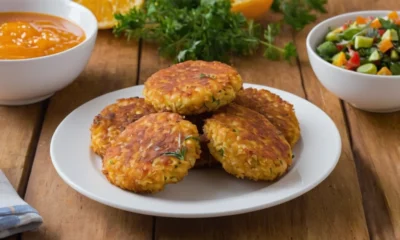
 FOOD5 days ago
FOOD5 days ago6 Creative Ways To Make The Most Of Rice In Nigeria


